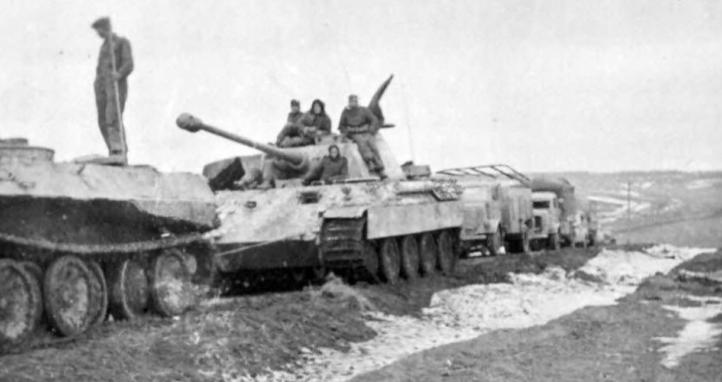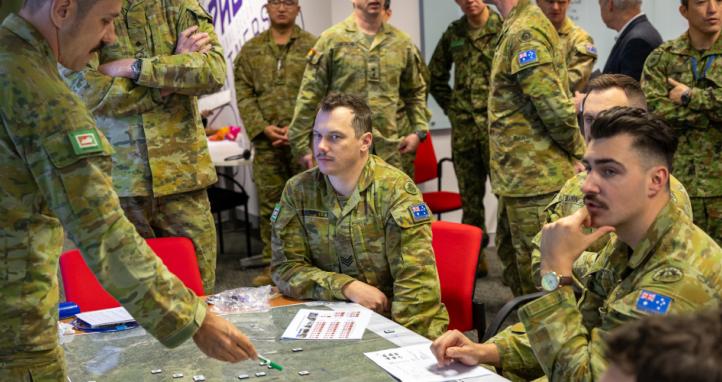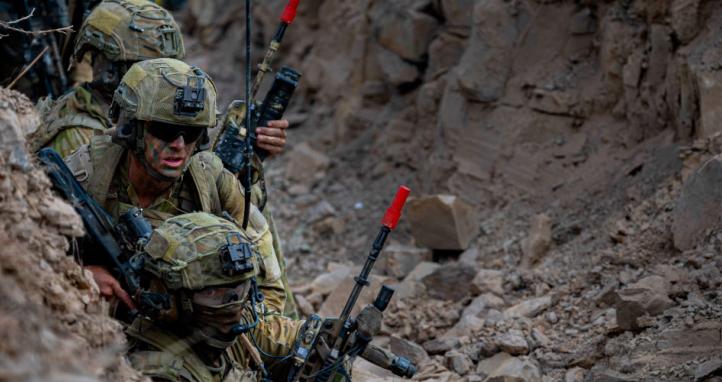Facts and figures
| GDP | $USD 30.93 billions |
| GDP per capita | $USD 2,994 |
| Currency | PGK (Papua New Guinean kina K) |
| Imports | $USD 2.31 billions |
| Exports | $USD 2.83 billions |
| Main industries | oil and gas; mining (gold, copper |
The 'Know Your Region' series is designed to support unit and individual professional military education on the South East Asian region. It's important for all serving members of our military to have a foundational knowledge of the countries and issues in the Indo-Pacific.
PNG – ECONOMY
On this page:
- Summary
- Economy and GDP
- Trade with Australia
Summary
PNG is a major Oceanic trading nation, with many natural resources that have unfortunately been exploited by larger nations and private companies for many decades. Significant trading partners include Australia, China, Singapore and Japan. The nation’s economy remains dominated through agriculture, fishing, as well as natural minerals, such as copper and gold. For a general overview, read the following article from the International Trade Centre: ntracen.org details on PNG.
Economy and GDP
PNG is assigned ‘developing state’ status by the International Monetary Fund. The vast majority of its population live in rural environments, where they survive on natural, traditional farming practices, otherwise known as a subsistence economy. PNG is a nation rich in natural resources, particularly mineral and renewable resources, such as marine life. However, due to significant hindrances to development, such as law and order issues, the ruggedness of the natural terrain, as well as governance which is often obstructed due to tribal affiliations within government, PNG has yet to reach its full potential.
PNG’s GDP typically amounts to just over 30 billion dollars. The extractable resources industry, which includes gold, copper and oil, accounts for over 70% of PNG’s export earnings. PNG relies heavily on external investors, both foreign government and private, to support the development and maintenance of this industry. PNG was one of the first Pacific nations to sign up to China’s ‘Belt and Road’ initiative, seeking significant Chinese investment across various PNG economic sectors, especially the maritime space.
For further information on PNG’s Economy and GDP, see the resources below: (a reminder, videos are available to view on your mobile devices or stand alone laptops - not on the DPN)
- Articles
Trade with Australia
Australia remains PNG’s largest trading partner, with a trade program worth nearly seven billion dollars annually. Australia is also the source of a significant amount of foreign aid received by PNG from international partners each year, with Australian aid contributing nearly 20% of PNG’s domestic health budget. Up to $600 million is donated to PNG annually, though that number is expected to be reduced in the 21/22 financial year.
Australia exports items such as petroleum and meat, as well as industrial parts, whilst it receives items such as gold and copper. Trade with PNG serves several purposes, including to support the health of PNG, particularly during the COVID-19 pandemic, as well as to assist national stability and economic security, which in turn assist with regional security.
For further information on PNG’s Trade with Australia, see the resources below:
- Videos
- Podcasts
- Articles
- PNG Trade / Economic Overview
- International Trade Administration - PNG’s Key Trade Agreements
- Australian Trade & Investment Commission - Export Markets - Papua New Guinea
- Health Security in PNG - Australia’s ongoing spt
- Australia’s development partnership with Papua New Guinea
- Papua New Guinea-Australia Comprehensive Strategic and Economic Partnership | Prime Minister of Australia (pm.gov.au)
- Australia’s development partnership with Papua New Guinea | Australian Government Department of Foreign Affairs and Trade (dfat.gov.au)
- The PNG-Australia Development Partnership – a practical approach to national development
Discussion questions
- As an economically developing nation, PNG will continue to seek foreign assistance from regional neighbours to support this development. What opportunities does this present Australia, and what part could the ADF play in this?
- Australia’s proximity to PNG afford it the ability to conduct mutually beneficial development projects, especially within the resources sector. Should Australia do more to assist PNG to develop its industrial base so that PNG can develop economically?
- The signing of the Belt and Road initiative with China signifies a shift in PNG’s interaction with the Asian superpower. What threat might that pose to Australia? What should we do at a political level to deal with this?
Know your region
Know Your Region series gives you a shortcut to understanding other nations in the Indo-Pacific region.









